Why can't fans own a slice of their favorite teams?
In the late spring of 1998, Cleveland's Major League Baseball team attempted something never done before in the league: It went public.
With an initial public offering on the NASDAQ exchange, anyone could buy a small slice of the franchise.
The club traded under the ticker symbol "CLEV." Cleveland joined the NBA's Boston Celtics (ticker: BOS) and the NHL's Florida Panthers (PUCK) as the only publicly traded North American pro sports franchises.
Cleveland was coming off a World Series appearance and was selling out Progressive Field for entire seasons. On June 4, 1998, when the stock debuted, the entire allotment of 4 million shares was sold within an hour of the opening bell. The shares debuted at $15 apiece, raising some $54 million after fees for late owner Richard Jacobs, who sold about half his stake in the club but retained voting rights and control.
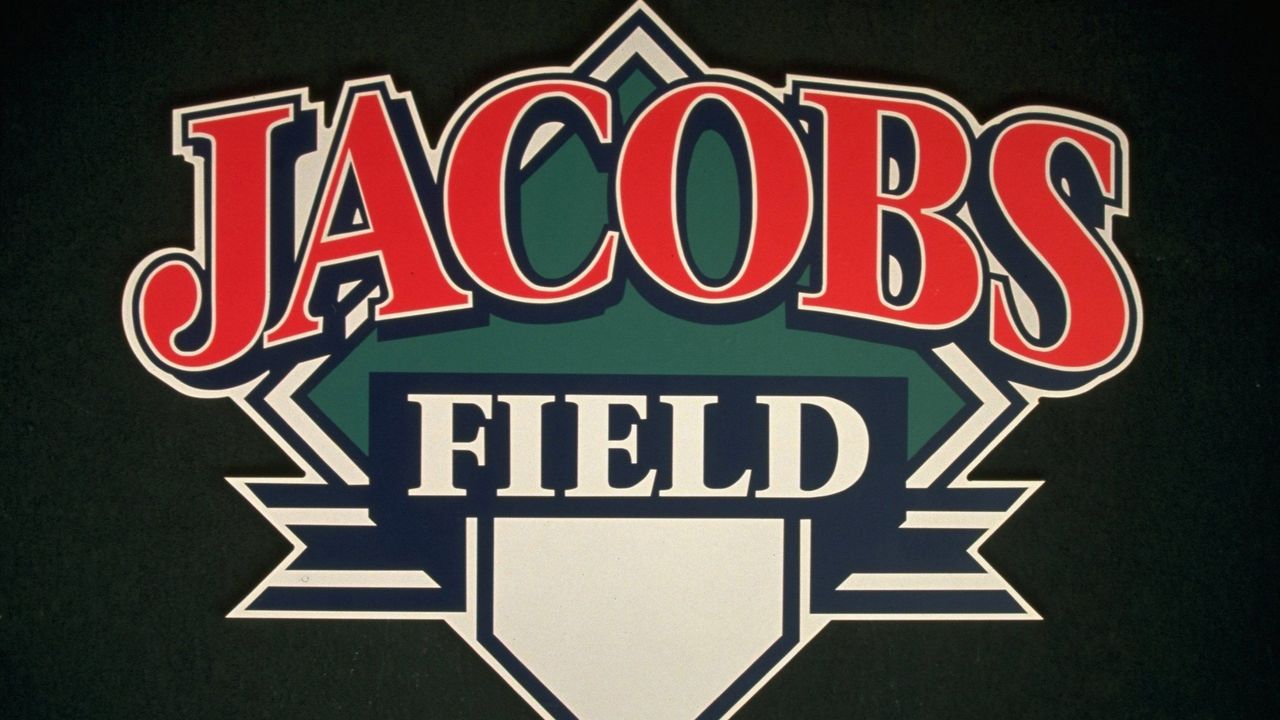 When it opened in 1994, Cleveland's new ballpark was first named after owner Richard Jacobs. David Liam Kyle / Getty Images
When it opened in 1994, Cleveland's new ballpark was first named after owner Richard Jacobs. David Liam Kyle / Getty Images"I'll find a good use to put it to," Jacobs told the Cleveland Plain Dealer of the cash. "I'm pleased with the acceptance of the offer by institutions and fans."
Jacobs hoped to diversify the club's revenue streams through media and real estate endeavors.
Today, the Guardians, Celtics, and Panthers are all under private ownership. Cleveland's baseball team was publicly traded for a little more than a year until Larry Dolan bought it in November 1999. Shareholders who held CLEV stock were paid $23 per share. The Panthers were purchased by an investment group in 2001. The Celtics were taken private in 2002. That was the end of the direct-listing era of publicly traded North American pro teams.
One can buy indirect stakes in the Atlanta Braves, Toronto Blue Jays, and Philadelphia Flyers through their parent companies, Liberty Media (BATRA), Rogers Communications (RCI), and Comcast (CMCSA), respectively, or in New York Knicks and New York Rangers stock through MSG Sports (MSGS), but there are no longer any North American-based sports franchises listed on their own.
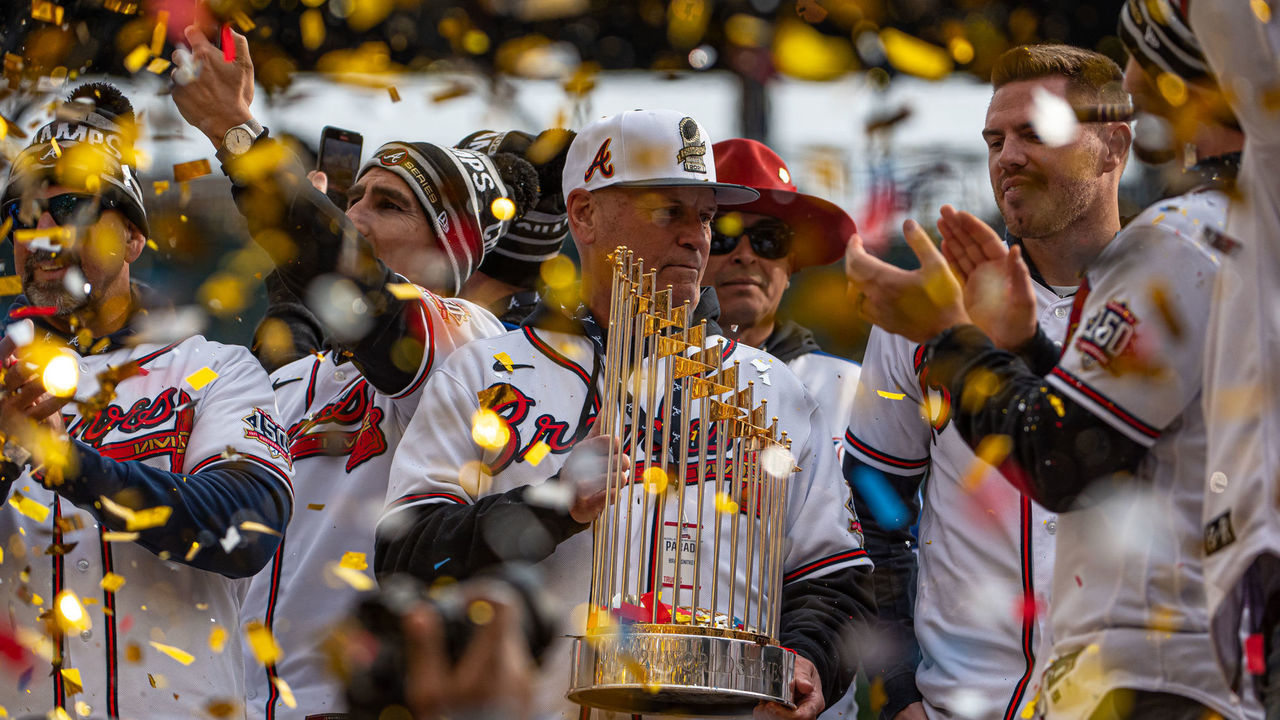 You can indirectly buy a slice of the Atlanta Braves by buying stock in Liberty Media. Icon Sportswire / Getty Images
You can indirectly buy a slice of the Atlanta Braves by buying stock in Liberty Media. Icon Sportswire / Getty ImagesThere are a few European soccer clubs, like Manchester United (ticker: MANU) whose shares can be purchased on public markets. The Green Bay Packers are owned by shareholders but shares of the team are not traded on the stock market.
So why don't we see more sports teams go public, at least in a limited fashion? Many fans would love to buy shares in their favorite teams like the San Francisco Giants or Dallas Cowboys.
In this age of record retail trading, with millions of new individual investors opening brokerage accounts and actively trading on apps and elsewhere, there is likely even more demand for pro sports stocks than in the 1990s. Teams could be the new meme stocks.
Team owners often claim they are struggling to turn a profit. They could raise hundreds of millions of dollars by selling off a portion of their clubs at a time of record valuations for many asset classes, including sports franchises. A record number of companies went public in 2021 taking advantage of market conditions.
When MLB commissioner Rob Manfred said last week that MLB owners would be better off to invest in the stock market instead of major-league teams, numerous fans stated on Twitter that they would be happy to transfer funds from their 401(k) to invest in baseball clubs.
If I could buy a microscopic share in a team - any team - right now, I'd run to the bank to get the check cut.
- Dave (@golfinshorts) February 10, 2022
Wouldn't fans rather trade in actual shares of the Yankees and Dodgers than NFTs? Fans would likely gobble up shares even if they were owned more as souvenirs than in hopes of ballasting their retirement accounts.
So why isn't this happening?
For starters, MLB introduced a rule in 2017 that prevented a club from going public. The Braves and Blue Jays were grandfathered in.
An industry source familiar with the rule told theScore, "It was decided that having a public company own an MLB team did not mesh with our rules concerning having a controlling owner who has ultimate authority and responsibility for making (team) decisions."
Similar to MLB, the NFL prohibits public ownership, and the NBA and NHL have requirements that make it difficult to go public, according to Stephen Dodson, a portfolio manager for the San Francisco-based Bretton Fund.
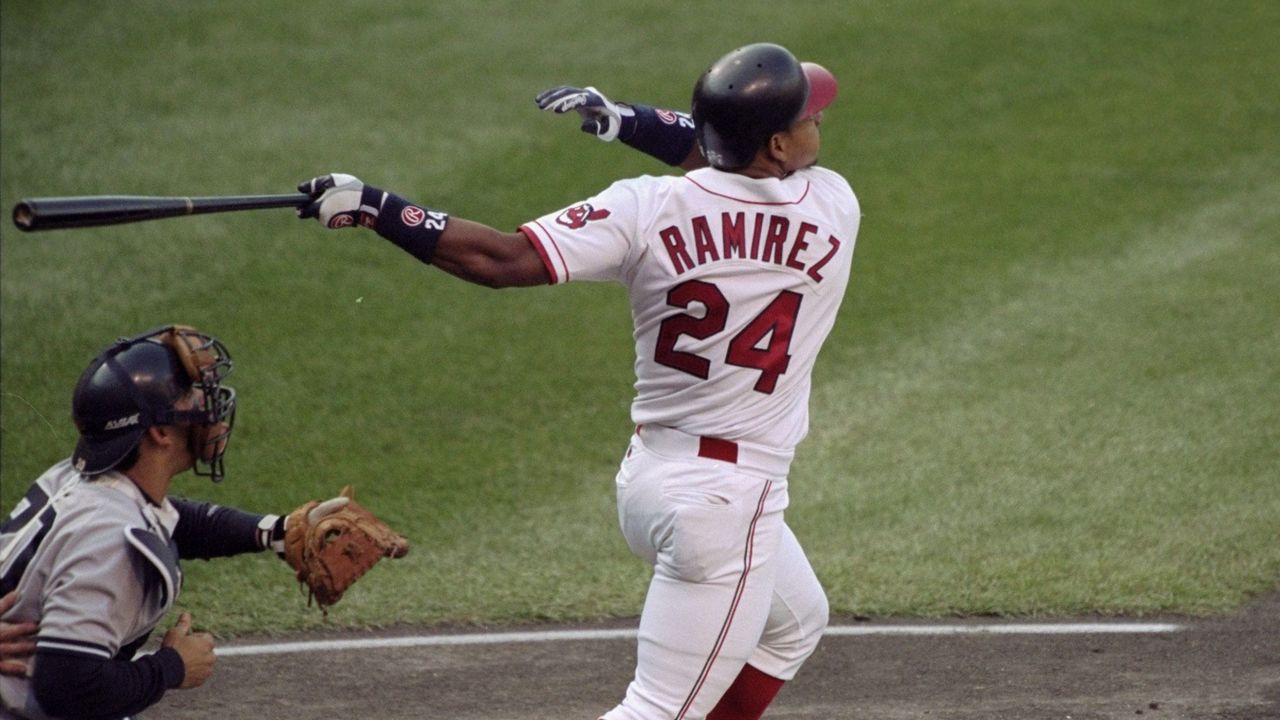 When Manny Ramirez took the field in 1998 - including in this playoff game against the Yankees - he did so as an employee of a publicly traded team, the first in MLB history. Jonathan Daniel / Getty
When Manny Ramirez took the field in 1998 - including in this playoff game against the Yankees - he did so as an employee of a publicly traded team, the first in MLB history. Jonathan Daniel / GettyMoreover, despite the lofty franchise values that pro sports enjoy, Dodson said Wall Street is not overly enamored with the prospect of investing in sports teams.
"A sports team is almost always worth more to a very rich person than it is to a company who only cares about its cash flows," Dodson said in an email interview with theScore.
"Sports teams are a bit of a vanity asset, like owning a Picasso, and the highest bidder is going to be a very rich person who wants to own the team so they (can) call themselves an owner of a sports team."
Growth opportunities are limited for most sports teams because they are largely still tied to local and regional revenues. Only the most iconic brands could hope to open up revenue streams nationally or globally.
Bill Miller, a financial journalist, said at the time of Cleveland's IPO, "The Indians can only sell ballgames in one spot, and that's Cleveland."
Even the club acknowledged this in its prospectus filing with the U.S. Securities and Exchange Commission. "The Company's management believes that much of the Club's local revenue potential has been realized and that future increases in the Club's revenues, operating income and net income, if any, are likely to be substantially less than those realized over the past five years."
One fund manager told Reuters of the CLEV stock, "This is something you buy and hang (the certificate) on the wall, or give to your grandson."
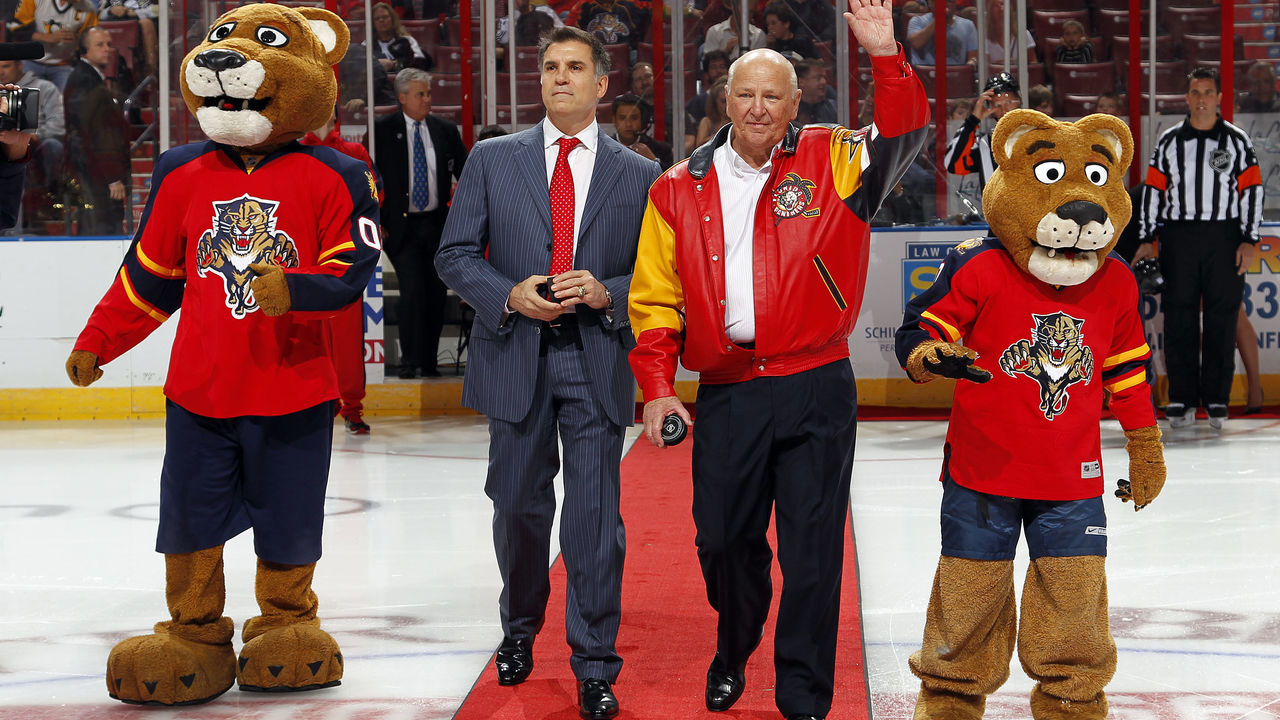 Florida Panthers new owner Vincent Viola and Original team owner H. Wayne Huizenga walk out on the ice at the BB&T Center on October 11, 2013 in Sunrise, Florida. Huizenga had taken the Panthers public. Eliot J. Schechter / Getty
Florida Panthers new owner Vincent Viola and Original team owner H. Wayne Huizenga walk out on the ice at the BB&T Center on October 11, 2013 in Sunrise, Florida. Huizenga had taken the Panthers public. Eliot J. Schechter / GettyWhile pro sports is big business, and franchises are valuable assets to own if you can afford them, it's relatively minor compared to other publicly traded giants.
Consider that Apple, the most valuable North American company, produced $123 billion in fourth-quarter revenue. That's more than all revenue MLB reported for 18 years combined from 2003 to 2020 ($120 billion).
Raphael de Balmann, co-portfolio manager with Dodson at the Bretton Fund, noted in an email interview with theScore, "Pro sports economics are set up to minimize reported income. This is important for a lot of reasons, not least that you have extremely strong unions. Public companies generally want to show high incomes."
Player pay was another foremost concern for the Cleveland baseball club, as it shared in its 1998 prospectus filing.
"The goal of the Company's player personnel management efforts is to maintain a competitive team while limiting the unpredictability in player salaries resulting from salary arbitration and free agency," the filing stated. "Management's confidence in its ability to identify promising young players has permitted the Club to selectively enter into multi-year contracts with players early in their careers."
It was in the early 1990s that Cleveland pioneered the practice of signing young players to pre-arbitration extensions to control costs. Sandy Alomar Jr., Carlos Baerga, and Charles Nagy were among the first Cleveland targeted.
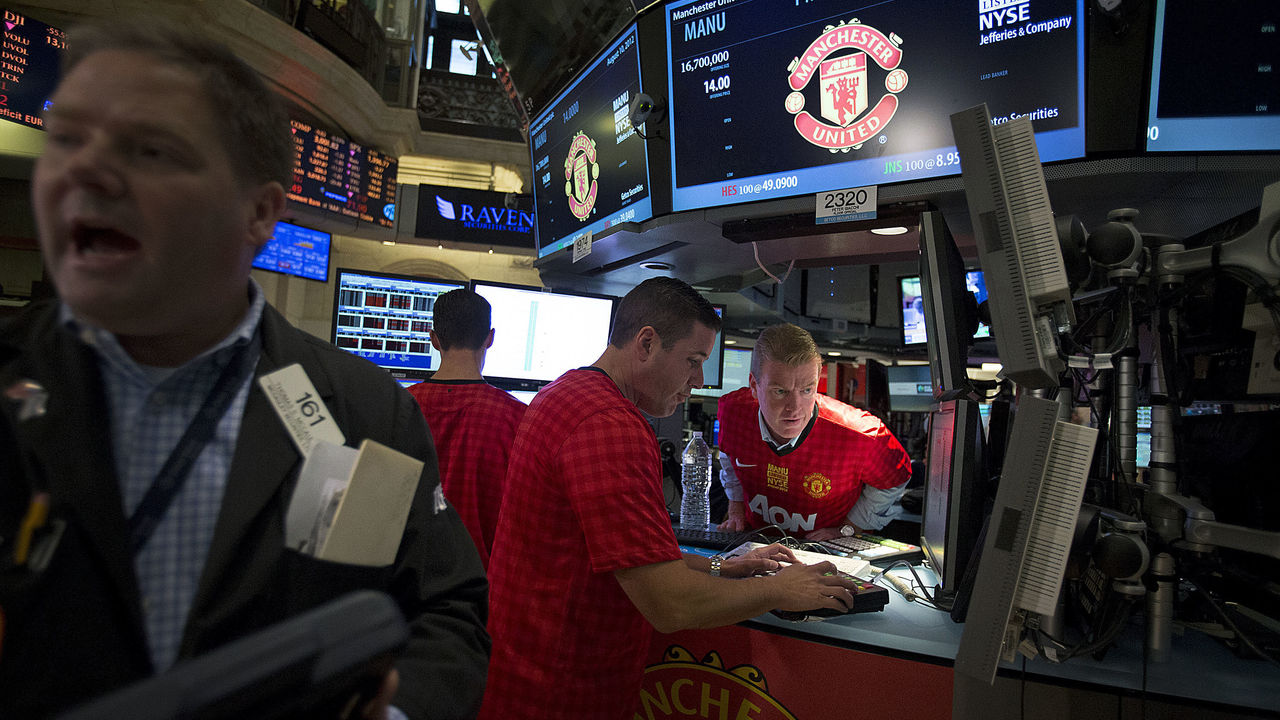 Manchester United's IPO hit the New York on Aug. 10, 2012. Bloomberg / Getty Images
Manchester United's IPO hit the New York on Aug. 10, 2012. Bloomberg / Getty ImagesOne member of an MLB ownership group who spoke to theScore said tax implications are a major reason why we don't see owners rushing to ring the opening bell at the New York Stock Exchange on the day of an IPO debut. Pro sports teams are akin to a Captain America-like shield for deflecting tax bills. Last year, ProPublica investigated the ways in which owners use their teams to avoid paying millions in taxes.
"There are a few major tax advantages in sports team ownership," De Balmann said. "The most obvious is depreciation in (a stadium). If you own Madison Square Garden, you depreciate the building over 30 years. That's a big tax shield.
"If you also own the Knicks and the Rangers, you have the Knicks and the Rangers pay a massive amount of rent - causing the Knicks and Rangers to be break-even ventures - and then the abnormally large income stream at the building is offset by its depreciation, so neither entity owes any cash taxes. That requires common control of both the arena and the team."
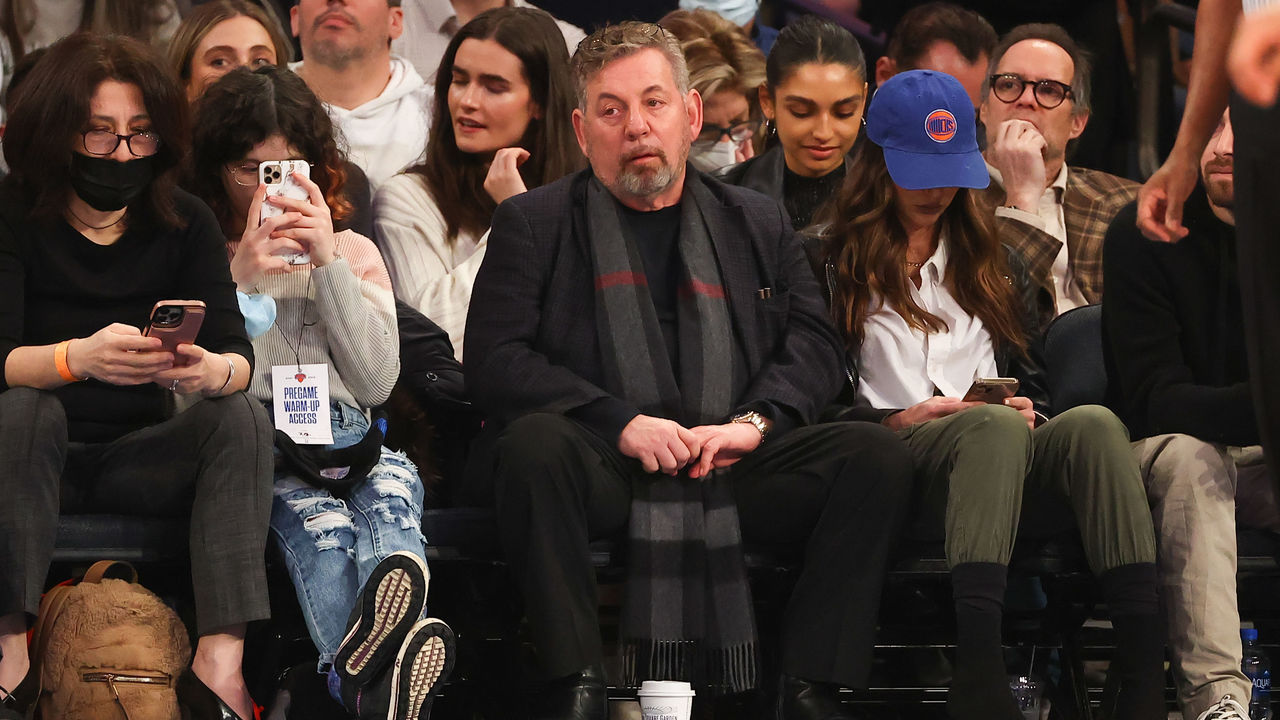 James L. Dolan has private control of the Knicks, Rangers and Madison Square Garden. Rich Graessle / Getty Images
James L. Dolan has private control of the Knicks, Rangers and Madison Square Garden. Rich Graessle / Getty ImagesThe Braves Group, as shown in Liberty Media's financial reports, wrote down $20 million in depreciation and amortization for their most recent quarter.
The open scrutiny that comes with being a public company would be unthinkable for any group of billionaires.
"You've got quarterly scrutiny with shareholders," Dodson said. "What billionaire wants that?"
Cleveland's IPO prospectus offered a compendium of the team's financials for the years from 1993 to 1998.
"In the current baseball dispute, the MLB teams refuse to open their books to the MLBPA, and in salary-cap sports such as the NBA, there is a very negotiated term, BRI - Basketball Related Income - that the owners insist upon to allow them to hide the rest of their economics," De Balmann said.
All that said, the Celtics and Indians were good investments for Wall Street and fans as publicly traded companies. They weren't just souvenirs; they both beat the market, which runs contrary to Manfred's claim last week that the stock market is a better investment than owning an MLB club.
Joshua Hubman, who wrote a 2011 thesis on the topic for the Finance and Sport Management program at SUNY Brockport, found that during the 14-year run when the Celtics were public, the stock produced an average annual return of 16.4%, including its dividend. That was compared to the S&P 500's 9% annual return during the same period.
(The S&P 500 is a stock market index that tracks the performance of 500 large companies listed on stock exchanges in the United States.)
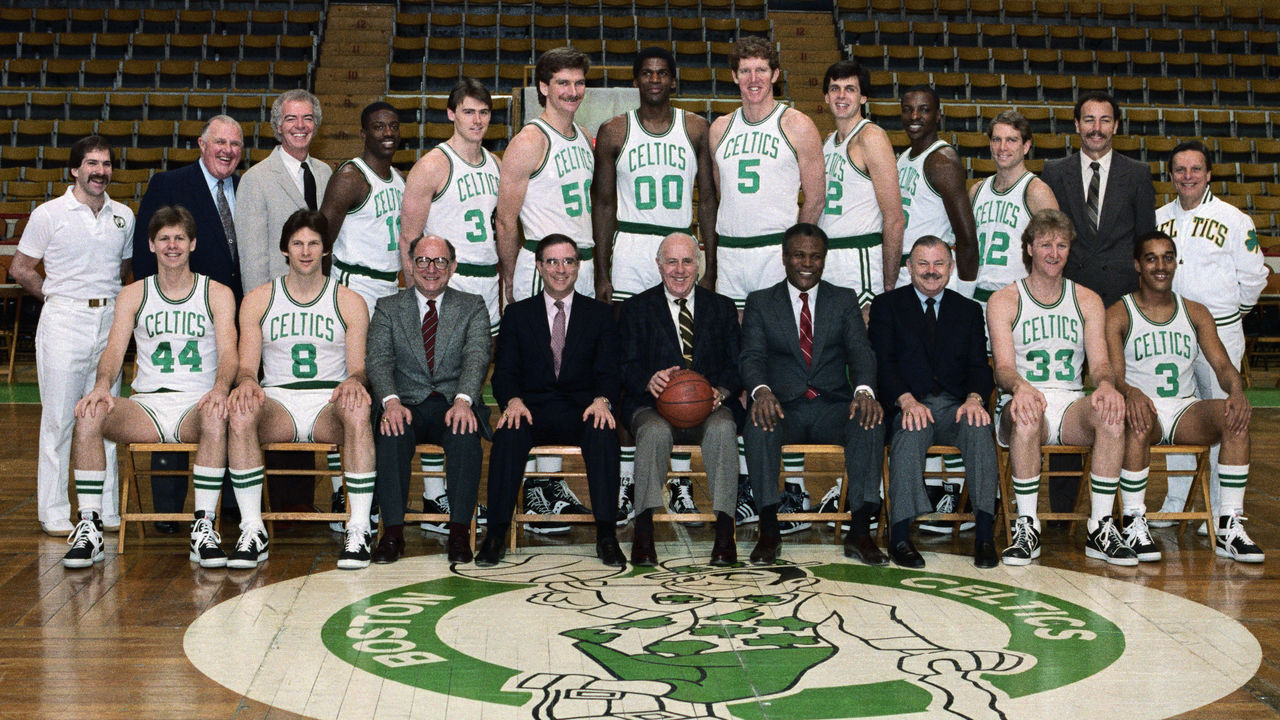 Celtics chairman Don Gaston, who took the team public in 1986, is next to Larry Bird in this 1986 team photo. If you invested in the Celtics, you would have beaten the S&P 500. Bettmann / Getty Images
Celtics chairman Don Gaston, who took the team public in 1986, is next to Larry Bird in this 1986 team photo. If you invested in the Celtics, you would have beaten the S&P 500. Bettmann / Getty ImagesCleveland beat the S&P 500 by 34 percentage points during its time being traded.
The Panthers averaged 12% gains per year but trailed the S&P 500's stronger return of 20% during its time on the open market. The NHL was also a much weaker industry at the time. The late Wayne Huizenga was awarded the Panthers as an expansion franchise in 1993 and took it public in 1996 to share the pain with investors after losing millions.
(A special purpose acquisition company (SPAC), a shell company that raises money through an IPO then purchases a company to avoid the IPO process, tried to buy the Panthers in 2009, but the deal fell through and the club remained private.)
With COVID-19 restrictions impacting teams' revenue over the last two years, some franchises have sold pieces of their companies to SPACs that are focused on sports.
Former Oakland Athletics executive Billy Beane is a partner in Redball, a SPAC that sought to acquire 25% of Fenway Sports Group earlier this year, although that deal has reportedly fallen through. Theo Epstein, the former Cubs and Red Sox executive, is a partner in Arctos NorthStar, a sports SPAC that trades on the New York Stock Exchange. Sportico reported that Arctos has $2.9 billion in assets and has already purchased small shares in the Golden State Warriors, Sacramento Kings, Tampa Bay Lightning, and Minnesota Wild.
Increasing franchise valuations is no doubt part of the appeal for SPAC investors. Many pro sports franchise values have greatly outpaced S&P 500 returns.
Fans would love to own small stakes in their favorite teams, but for now, it looks like SPAC shares, or those of Rogers or Liberty Media, are as close as they can get.
Travis Sawchik is theScore's senior baseball writer.
Copyright (C) 2022 Score Media Ventures Inc. All rights reserved. Certain content reproduced under license.